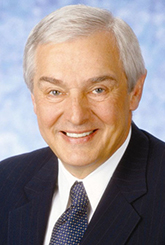“Unfortunately, you’re not getting justice today. You’re getting the end of injustice.”
Those were the words spoken by Texas State District Judge Mark Stoltz to James Lee Woodard when he was released from prison after being locked up for 27 years and four months for crimes he didn’t commit. Advances in forensic science allowed for new DNA testing that proved Mr. Woodard could not have committed the crimes of which he was accused. When he walked out of prison in April 2008, he was the 17th inmate since 2001 in Dallas County, Texas, to be exonerated on the basis of DNA testing.
Identification technology has definitely gone high-definition in recent years. But DNA is not the only advancement in identification technology. Just recently, scientists have discovered a way to retrieve fingerprints from surfaces that were wiped down to remove any trace of prints. And because the iris of every person’s eye is as unique as fingerprints, iris recognition is fast becoming a way to identify individuals for access into highly secret corporate or government environments. And face-recognition technology is being developed for scanning large crowds to identify suspects and perpetrators who might otherwise pass unnoticed.
The more science studies people and products, the easier it is becoming to identify them specifically and in terms of groups to which they belong.
High-definition Christian identification
These sophisticated identification technologies are available only to those who know how to use them. But did you know there is a high-definition identification system that is available to anyone in the world that can be used at any time? In fact, instructions on this method were published in the most widely-available book in the world: the Bible.
The system: High-definition Christian identification. That’s my way of saying what the Bible says — that Christians should be easily identifiable by their words, deeds and character.
Jesus never intended for Christianity to be a covert movement, known only to insiders. It is obvious that, in the early years of the church in the Roman Empire, Christians’ words and deeds set them apart from others.
High-definition Christian living
As Jesus prepared to leave this earth, He gathered with His disciples for a final meal together and spoke to them of a new commandment, obedience to which would set His disciples apart and make them easily identifiable (John 13:34-35):
The requirement (verse 34): “A new commandment I give to you, that you love one another; as I have loved you, that you also love one another.”
The result (verse 35): By this all will know that you are My disciples, if you have love for one another.”
Those early Christians understood they were to love others the way God had loved them (Ephesians 4:32). And it was profoundly noticeable.
And not just love for fellow Christians, but love for strangers, non-Christians, the poor, the persecuted — love for everyone. The post-apostolic church took literally the words of the apostle Paul written to the Galatian church: “Therefore, as we have opportunity, let us do good to all people, especially to those who belong to the family of believers” (Galatians 6:10). There is a sense in which the world has a hard time accepting our “love” if they look at the Christian church and see us not loving one another.
The phrase “love one another” occurs 13 times in the New Testament. In those verses, we are not given specific instructions on how to love. Rather, they are repeated references to the fact that Christ said we are to love one another. We are given a picture of love in 1 Corinthians 13 — beyond that, it boils down to obedience.
Will we choose to love sacrificially in all our relationships with others? Something very important depends on our positive answer to that question: whether the world will be able to identify us as followers of Jesus and be attracted to the source of our love.
— David Jeremiah is the founder and host of Turning Point for God and pastor of Shadow Mountain Community Church in El Cajon, Calif. For more information on Turning Point, visit www.DavidJeremiah.org. This column has been approved by Turning Point for redistribution in Baptist state newspapers and in Townhall.com; for other reprint requests, contact Myrna Davis at mdavis@turningpointonline.org.

